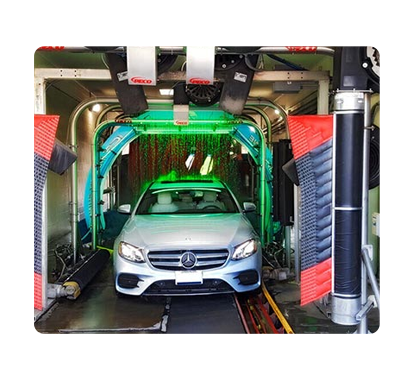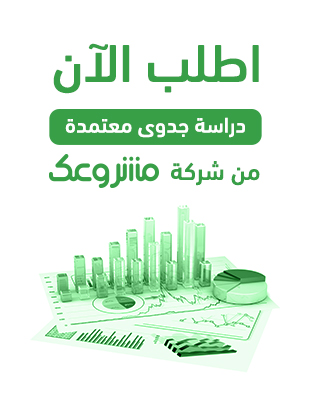According to Macroeconomic Sector Theory
The economy is divided into three main sectors. The first sector involves raw material extraction, including mining, timber, oil exploration, agriculture, and fishing. The second sector focuses on goods production and sales, such as automobile manufacturing, furniture, and clothing trade. The third sector, known as the “service sector,” provides intangible services, including entertainment, healthcare, transportation, hospitality, and restaurants. This theory suggests that as nations progress, their economies become increasingly service-based, unlike primitive economies that primarily rely on the first sector. For example, in the United States, the service sector accounts for 85% of the economy.
Saudi Arabia
The service sector in Saudi Arabia is extensive and includes wholesale and retail trade, hospitality, transportation, finance, insurance, real estate, business services, social and personal services, and government services. Below are key indicators of the sector’s contribution to the economy:
-
The service sector contributes approximately 48.2% to Saudi Arabia’s GDP.
-
The wholesale and retail trade, hospitality, and restaurants sector contributes 10.8% to GDP.
-
The transportation, storage, information, and communication sector contributes 6.6% to GDP.
-
The finance, insurance, real estate, and business services sector contributes 6.4% to GDP.
-
The social and personal services sector contributes 2.5% to GDP.
-
The government services sector contributes 21.9% to GDP.
-
In the past year, Saudi Arabia issued 100,944 new commercial licenses, bringing the total to 348,173 licenses. The majority were issued for wholesale and retail trade, vehicle repair (48,242 licenses), followed by hospitality and food services (16,531 licenses) and construction (11,521 licenses).
Qatar
-
The wholesale and retail trade sector in Qatar is valued at 50,083 million Qatari riyals.
-
There are 11,139 establishments in the wholesale and retail trade sector, employing 213,954 workers.
-
Employee compensations in this sector amount to 11,288,877 thousand Qatari riyals.
-
The hospitality and restaurant sector includes 2,396 establishments with 78,194 employees and compensations reaching 2,947,431 thousand Qatari riyals.
-
Mobile phone subscriptions in Qatar include 976,015 regular users and 2,941,556 prepaid service users.
-
Roads paved in the past year reached 2,224 km.
-
Newly issued driver’s licenses totaled 242,923 last year.
-
Employee compensations in the transport and communication sector amounted to 24,338,223 thousand Qatari riyals.
-
Insurance documents issued last year totaled 715,897.
-
Business services establishments total 4,973, employing 215,285 workers with compensations exceeding 15,347,819 thousand Qatari riyals.
-
Employees in the social and personal services sector in the private sector number 80,569, with compensations reaching 6,127,645 thousand Qatari riyals.
Kuwait
-
The wholesale and retail trade sector contributes 1,644.3 million Kuwaiti dinars to GDP.
-
The hospitality and restaurant sector contributes 418.6 million Kuwaiti dinars.
-
The transportation, storage, and communication sector contributes 2,554.5 million Kuwaiti dinars.
-
Paved roads in Kuwait cover 91,340,068 m².
United Arab Emirates
-
Wholesale and retail trade, vehicle repair contributes 12.3% to GDP (172,288 million AED).
-
Transport and storage contribute 5.9% to GDP (82,461 million AED).
-
Hospitality and food services contribute 2.3% to GDP (32,357 million AED).
-
Information and communication contribute 2.9% to GDP (41,347 million AED).
-
Financial and insurance activities contribute 9.6% to GDP (134,773 million AED).
-
Insurance policies issued at the end of the previous year totaled 7,584,607.
-
Wholesale and retail trade employs 13% of the total workforce.
-
Transport and storage employ 6.2% of the workforce.
-
Hospitality and food services employ approximately 5% of the workforce.
Oman
-
Oman’s GDP stands at 29.3 billion Omani riyals.
-
The wholesale and retail trade sector contributes 7% to GDP (2,064.7 million OMR).
-
The hospitality and restaurant sector contributes 1.1% to GDP (308.6 million OMR).
-
The transportation, storage, and communication sector contributes 5.9% to GDP (1,721.2 million OMR).
The Global Service Sector
The service sector is the largest contributor to global GDP, accounting for more than three-fifths of total economic output. Unlike industries that produce tangible goods such as automobiles and furniture, this sector provides intangible services like banking, healthcare, transportation, hospitality, and entertainment.
The market value of the global service sector was estimated at $10,814.49 billion in 2020 and increased to $11,780.11 billion in 2021, achieving a compound annual growth rate (CAGR) of 8.9%. After recovering from the COVID-19 pandemic, global market analysts expect the sector’s market value to reach $15,683.84 billion by 2025, with an annual growth rate of 7% in the coming years.






